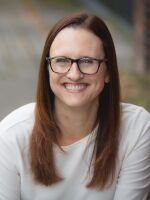The Seattle School District is suing social media companies. The district wants platforms like Snapchat, TikTok and Instagram to take responsibility for the impact they have on the mental health of young people and help pay for the support that students need.
But what do young people think about the Seattle School District's lawsuit against social media?
The Seattle Student Union is a voice for students. Formed last year, the union has advocated for things like stricter gun control measures, following a fatal shooting at Ingraham High School, and more mental health counselors in schools.

The Seattle School District said the social media lawsuit is just one strategy it's using to help students. And it stressed that no district money is being used in the legal action. The Kent School District has joined Seattle's complaint.
17-year-old Noir Goldberg, an executive board member of the Seattle Student Union, joined KNKX Morning Edition host Kirsten Kendrick to talk about this approach.
Listen to their conversation above or read the transcript below.
Transcript
Note: This transcript is provided for reference only and may contain typos. Please confirm accuracy before quoting.
KNKX Morning Edition host Kirsten Kendrick: What does the union think of the school district's lawsuit?
Seattle Student Union executive board member Noir Goldberg: We do understand the impacts of social media on children. But suing social media companies is not the right way to go about addressing mental health.
Kendrick: Some say it may be at least a symbolic move meant to shine a light on what some view as the negative impact of social media on young people. What is your response to that?
Goldberg: Social media is always a bit of a tricky issue. While, yes, it can cause, like, bullying or self-image issues, it has also been an incredible resource for people, especially during the pandemic, when we were able to see each other face-to-face and enables people to connect. And it helps with having a more widespread perspective about mental health. Personally, I've had it impact me very beneficially. It's also spread more awareness about mental health and helps to destigmatize it. But there are tons of other factors that contribute to the decline in mental health with teens that we have been seeing, and it's been on the decline for years. And I think it just kind of hit a breaking point with the pandemic, with everyone getting removed from their support systems. And now that it's, like, become more socially acceptable to speak out about it, we're having more people come forward with their issues.
Kendrick: Do you think that adults, particularly older adults, might point to social media and say "there's nothing but bad things that result from from using this?" Do you think that that can also stem from them not using social media as much or not being familiar with how it can be helpful?
Goldberg: I've definitely been told the narrative of social media as this big, bad, like evil, and there are definitely dangers to social media in the same way that there are within any community. But definitely growing up with it and having it be so built into our lives, we definitely have a different, like, awareness and opinions towards it than people who are just seeing it now. Parents can view it as just a dangerous place for their kids because there is so much more connection online. But that can also be a good thing when done safely.
Kendrick: And what specifically do you want the district to do, providing more counselors per school?
Goldberg: The demands that we had that were more tailored towards schools were a 1 to 200 ratio for students and counselors. One counselor to 200 students, as recommended by the national counselor's board, and adequate funding for that. So that way we could have counselors that were representative of school populations and people of color and people with, like, minoritized identities would feel represented in the ways that they were seeking help.
Kendrick: How do students talk about mental health when you're relating to each other at school? Is it talked about openly? Is it, is it something that has become more of an open issue to discuss?
Goldberg: It definitely has. It's hard to find someone who hasn't gone through some sort of struggle, which is incredibly unfortunate. Everyone seems to have either a success story or just the story of what they're going through at the moment. And it's become very normalized, which is great because it creates space for people to bring these issues up and to get help. But it's definitely become more of a normal conversation, a lot more than it has been in the past.
Kendrick: Would you like to see more from the district on this and promoting open discussion about mental health issues?
Goldberg: We would. We would really like the district to help us with the counselors support.
Kendrick: Noir, thank you for taking the time to talk with me.
Goldberg: Of course. Thanks for giving us this opportunity.
Kendrick: Noir Goldberg is a junior at Ballard High School and an executive board member of the Seattle Student Union.








